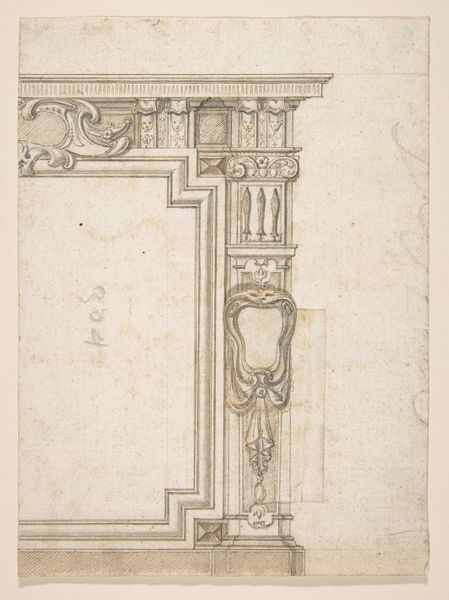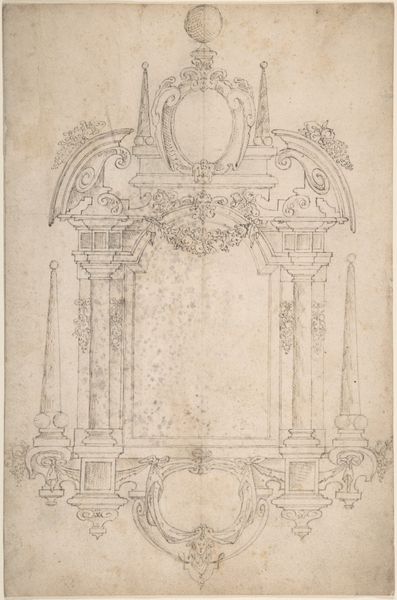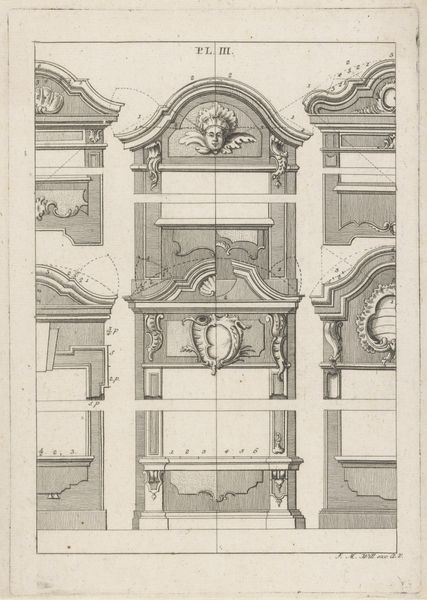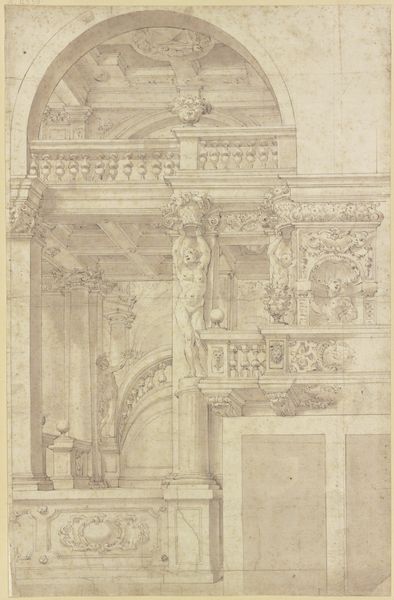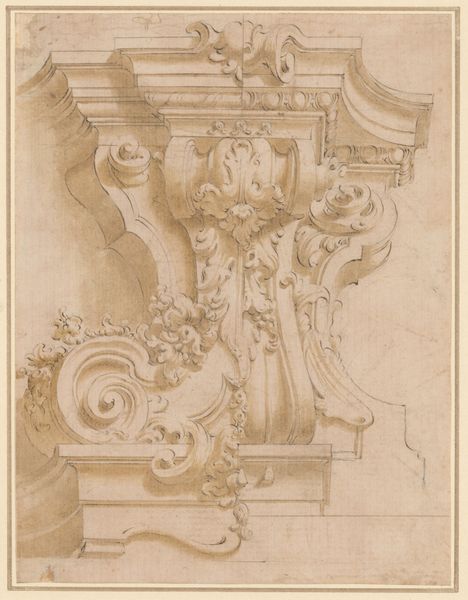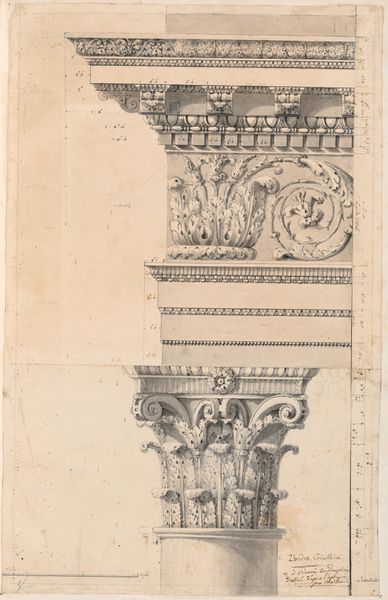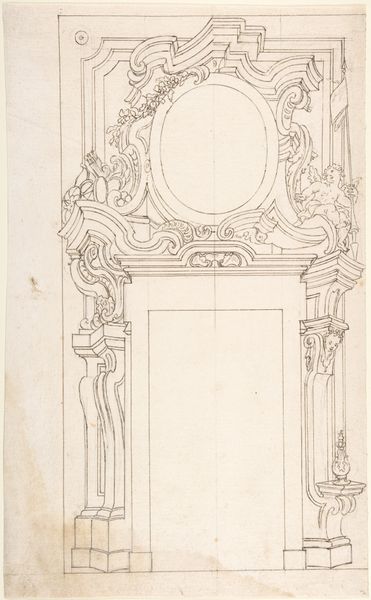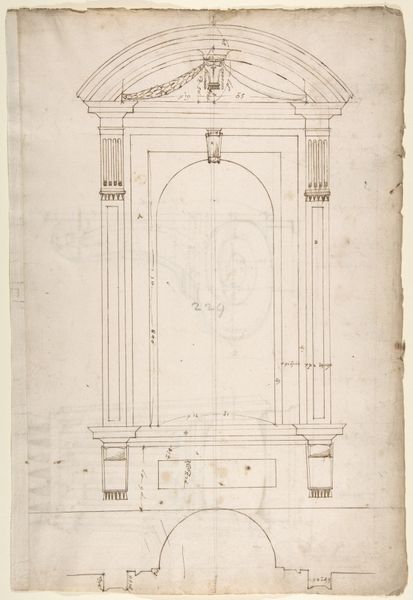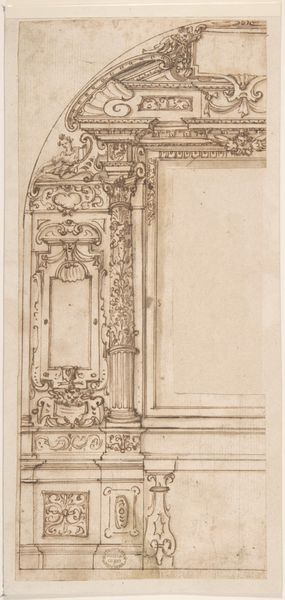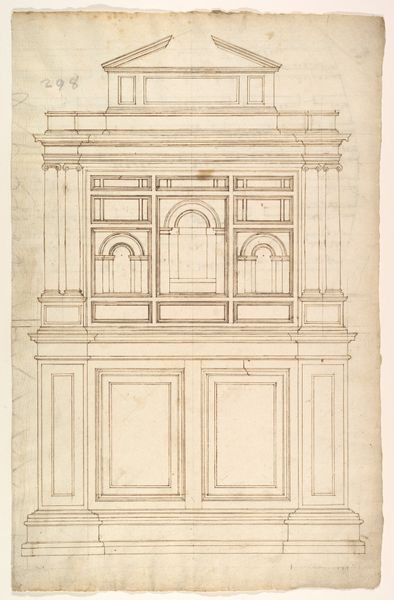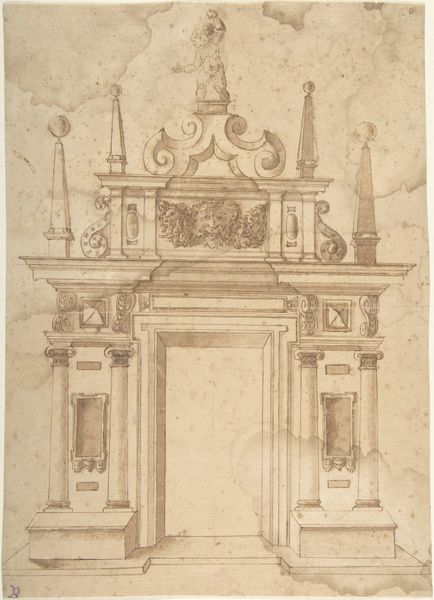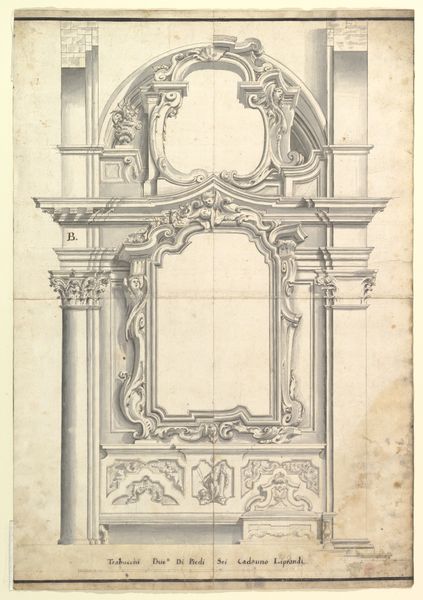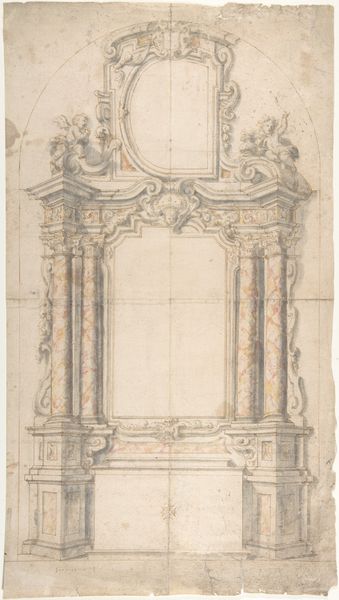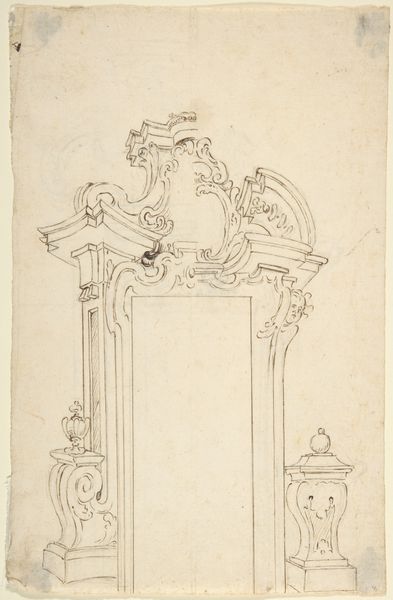
Design for a Freestanding Tomb Seen in Elevation and Plan 1530 - 1535
0:00
0:00
drawing, paper, ink, pencil, architecture
#
drawing
#
aged paper
#
toned paper
#
light pencil work
#
pencil sketch
#
human-figures
#
paper
#
form
#
11_renaissance
#
ink
#
geometric
#
pencil
#
architecture drawing
#
history-painting
#
italian-renaissance
#
architecture
Dimensions: sheet: 15 13/16 x 7 3/8 in. (40.1 x 18.8 cm)
Copyright: Public Domain
This drawing presents Antonio da Sangallo the Younger's design for a freestanding tomb. Look at the sarcophagus: note the effigy of the deceased reclining atop it, a motif that has roots stretching back to Etruscan and Roman funerary art. Consider the sculpted figures adorning the tomb, which have origins in ancient Roman portraiture, embodying idealized virtues and commemorating individual identity. This emphasis on individualized representation, however, began to shift during the Middle Ages, when funerary art became more allegorical. The architectural framework itself, with its classical columns and entablatures, echoes the forms of ancient temples and civic structures, reflecting a desire to connect with the grandeur and authority of the Roman Empire. This yearning for the past is an expression of collective memory, resonating on a psychological level. Such architectural elements have continually resurfaced, evolving through various revivals, each time imbued with new layers of meaning.
Comments
No comments
Be the first to comment and join the conversation on the ultimate creative platform.
